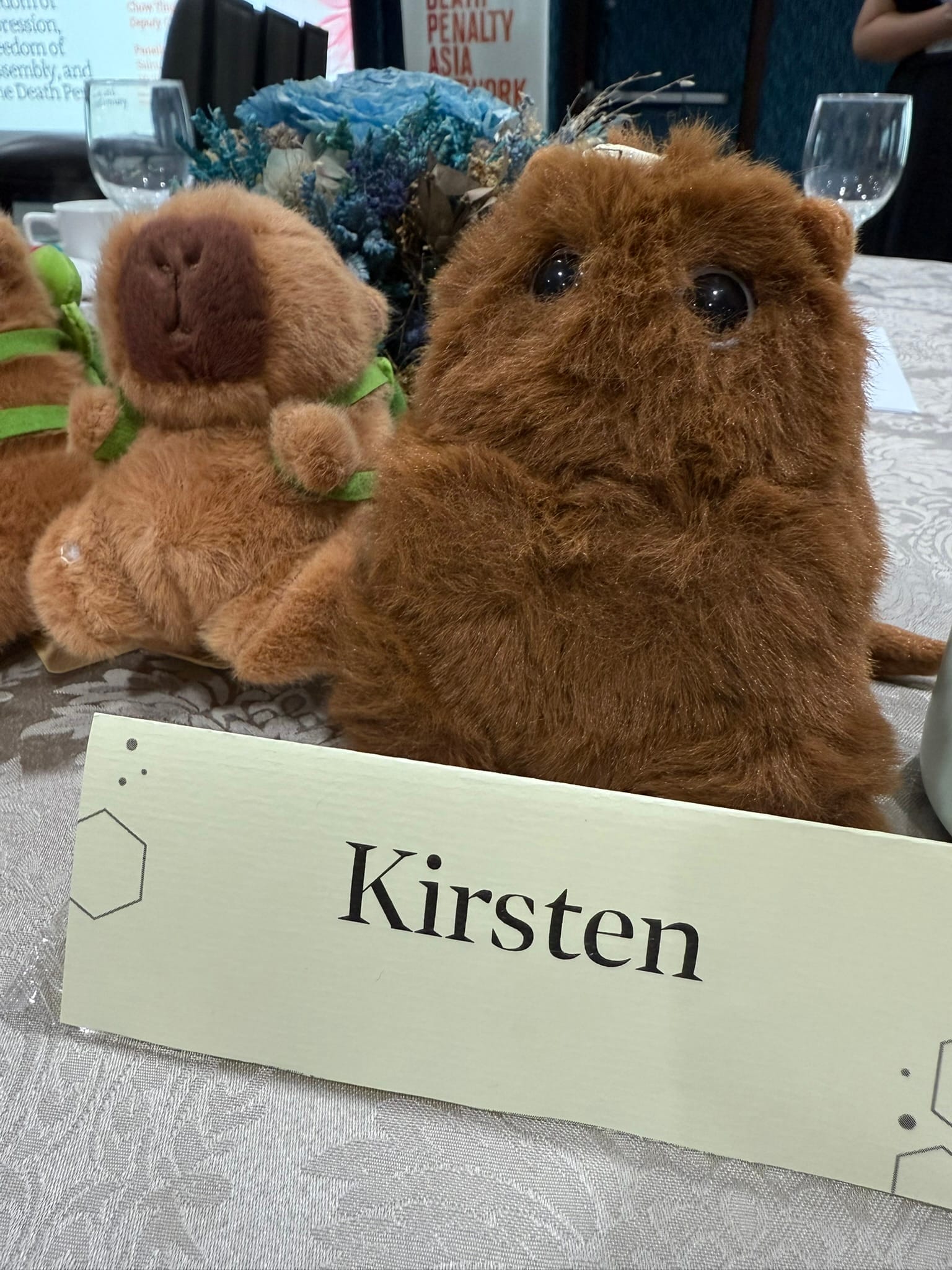Greetings from Manila, where I’m attending the Anti-Death Penalty Asia Network’s regional conference. I basically spent the past two days asleep in an attempt to recover from a cold extra fast so I could be alert and awake for the conference and, barring a stupid cough, I'd like to think I've been successful 😎 Also, why did I wait so many years to eat sinigang again? I love it so much.
(1)
Workers Make Possible has been organising with and supporting workers through many struggles with employers. The latest case they’ve highlighted on Instagram involves migrant workers who’ve faced difficulties with food and accommodation while they’ve got claims pending against their employer. “Many of them have provided accounts of being denied food for days on end,” WMP writes in their post. “Even when their employer provides food, they are humiliated and made to face many troubles getting it.” The boss, WMP says, has also been pressuring the workers to adhere to prohibitions on leaving their dorm rooms. But why should they have to face such conditions?
(2)
There’s been an uproar over community cat killings recently. First, there was the horrible death of King Kong, a beloved community cat in Yishun who was described as having been disembowelled and with eyes gouged out, at the beginning of May. Even K Shanmugam, home affairs minister and MP for the area, weighed in to say it was “appalling cruelty”. Now, about a month later, the National Parks Board says that “a vehicular impact is the most likely cause of the blunt force trauma” that King Kong had suffered and “there was no evidence to suggest a deliberate act of animal cruelty”. Another dead cat in Tampines has also been concluded to have been a victim of a traffic accident, and another poor baby in Punggol. Investigations are still ongoing for a case where a pet cat was found dead in Yishun.
Although the authorities attribute these recent cases to traffic accidents, the Society for the Prevention of Cruelty to Animals (SPCA) says that the confirmed reports of animal cruelty and concerns for welfare that it received hit a 12-year high last year. The recent cases have also drawn attention again to violence against community cats, leading to a Change.org petition demanding changes like updating animal cruelty laws, implementing restraining orders to keep “known abusers from areas with community cats” and introducing caning for “repeat or sadistic offenders”, among others.
I’m a huge cat lover and the thought of someone being violent or cruel towards a cat fills me with a red hot rage. At the same time, the thought of an expansion of the use of judicial caning in Singapore horrifies me. Yes, there’s a primal, instinctive part of me that wants to quell my fury by seeing pain inflicted on animal abusers, because I can easily imagine myself going full John Wick on anyone who dares lay a finger on any of my precious cat-boys. But I also know that this habitual desire for harsher and harsher penalties—for a deterrent effect that we assume exists, even though that might not actually be true—only spreads more pain and abuse rather than addressing harm and getting to the root of why things like this happen. Can we get more insight into why the number of such cases might be rising? What is it that drives someone to do something so horrible and cruel to another living being? Does this point to a deeper sickness in our society that we should address as a community, rather than immediately defaulting to punitive approaches? If we had a deeper, more holistic understanding of the situation, could that help us identify some conditions that can we change to reduce as much as possible—if not entirely eliminate—such acts of violence? Because yeah, fuck sadistic assholes who torture creatures much weaker than them, but we can choose not to respond to their violence with more violence.
Got some more…
👩🏻💻 Last year, the government blocked a Russia-linked website masquerading as a legit news website. Seems like it’s back. Researchers from the S Rajaratnam School of International Studies found that Asianews.io has similar content to what was on the blocked site Alamak.io and also shares the same operator. These sites have not yet mounted hostile information campaigns in Singapore, but the authorities blocked Alamak.io and a bunch of other sites last year because they said these inauthentic platforms could be used for such disinformation campaigns some time in the future.
This is the reality of fighting misinformation online—it’s an endless game of whack-a-mole. Take something down and it’s all too easy to put something up again, and AI-generated content makes it even quicker and easier to populate a page. Takedowns and access blocks, with sufficient oversight to ensure that we’re not suppressing legitimate expression, can be part of the battle but they’ll never be the whole answer.
💰 Teo Chee Hean’s got a new job: as of 9 October this year, he’ll be the new chairman of Temasek Holdings, taking over from Lim Boon Heng. He’ll first join as deputy chairman in July before taking over the reins later.
⛓️💥 How time files. S Iswaran, the disgraced former transport minister, is a free man once again. He was given a 12-month sentence on 3 October 2024 and went to prison a few days later. In February this year he was transferred to home detention, and now he’s totally done.
Around the region
✊🏼 Currents — on human rights and change-making in Asia
🌏 Asia Undercovered — issues in Asia that don't get enough coverage in Western-centric news media
🇰🇭 Campuccino — News and issues from Cambodia
🇲🇾 The Malaysianist — On the intersection of business and politics in Malaysia
🇻🇳 Vietnam Weekly — News and views from Vietnam
Thank you for reading! As always, feel free to forward this weekly wrap to anyone you like, and spread the word about this newsletter!

